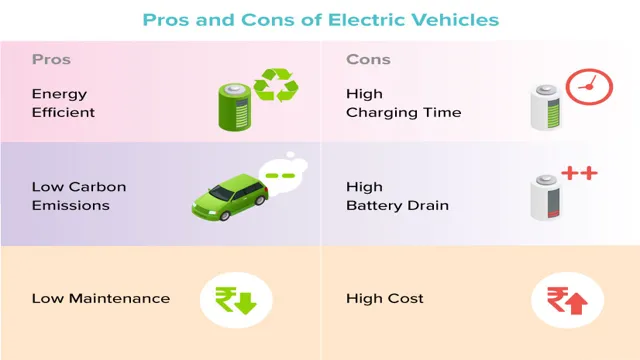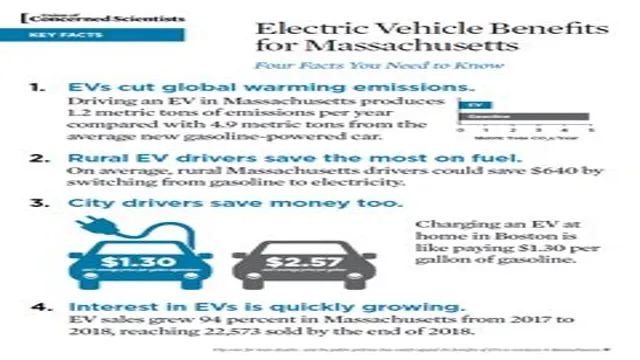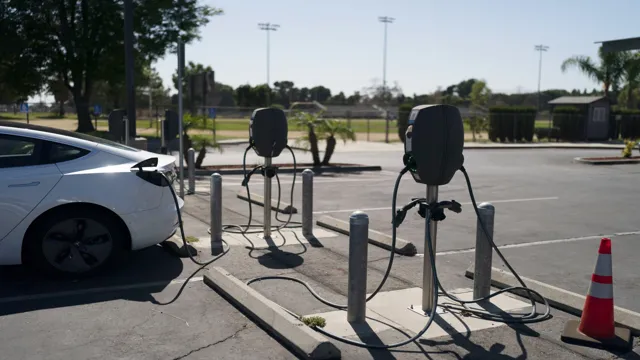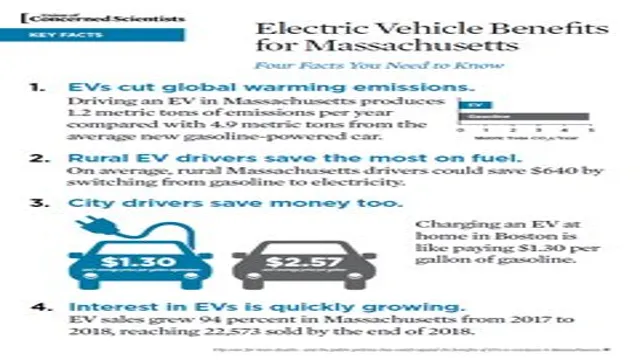Driving Towards a Greener Future: Exploring the Climate Benefits of Electric Cars
Electric cars may offer individuals a great number of benefits beyond saving money on gas and reducing trips to the pump. When it comes to protecting the environment and mitigating climate change, they offer a number of clear advantages as well. In fact, it’s becoming increasingly clear that switching to an electric car can be a major step individuals can take to reducing carbon emissions and living more sustainably.
To understand why electric cars are such a powerful tool in protecting the climate, it’s important to consider their impact on greenhouse gas emissions. When running on fossil fuels, traditional cars emit large amounts of carbon dioxide, which is a major contributor to climate change. Conversely, electric cars run on batteries which produce zero emissions.
Therefore, switching to an electric car is not only an environmentally conscious choice but also a practical one. Considering the long-term impact of using electric cars on climate change, it’s clear that choosing an electric car is a logical step towards living more sustainably. Over time, the collective impact of switching to electric vehicles is significant, and can drastically reduce the carbon footprint of an individual and their community.
So, if you’re considering making a change to protect the environment, switching to an electric car may be an effective way to do so that offers benefits that you may not have even considered before.
Reducing Greenhouse Gas Emissions
Electric cars are a great way to reduce greenhouse gas emissions and help combat climate change. By replacing traditional gasoline-powered vehicles with electric vehicles, we can greatly decrease the amount of harmful emissions that are released into the atmosphere. According to studies, electric cars can reduce greenhouse gas emissions by more than half compared to traditional gas cars! This is because electric vehicles are powered by electricity, which produces fewer emissions than burning fossil fuels.
Additionally, electric cars can be powered by renewable energy sources like solar or wind power, further reducing their impact on the environment. By switching to electric vehicles, we can take a significant step towards improving the health of our planet and reducing our overall carbon footprint.
Data on Electric car Emissions
As we strive to reduce greenhouse gas emissions and combat climate change, electric cars are becoming an increasingly popular option. But just how much do they actually help reduce emissions? Well, the answer depends on a few factors. Firstly, the source of the electricity used to power the car.
If the electricity is generated from renewable sources such as wind or solar, then the emissions produced by the car are effectively zero. However, if the electricity comes from fossil fuels such as coal, then the emissions will still be significant, albeit lower than those produced by traditional gasoline-powered cars. Another factor to consider is the manufacturing of the car itself.
Electric cars require a lot of resources and energy to produce, and if the production process is not done sustainably, the emissions produced can be significant. That being said, as technology continues to improve and renewable energy becomes more widespread, electric cars have the potential to make a significant contribution to reducing greenhouse gas emissions and fighting climate change.
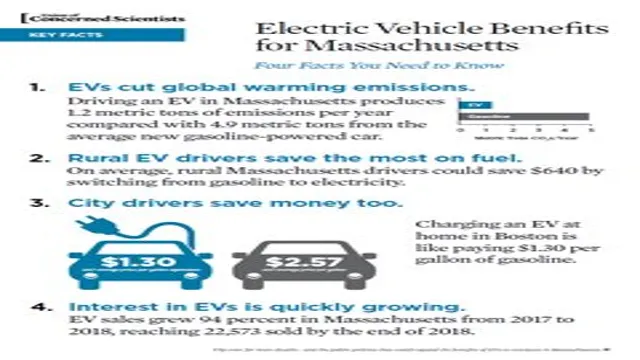
Comparing Electric Cars to Gasoline Cars
When it comes to reducing greenhouse gas emissions, electric cars have the clear advantage over gasoline cars. While gasoline cars emit harmful gases that contribute to air pollution, electric cars produce zero emissions. This means that driving an electric car can significantly decrease your carbon footprint and help combat climate change.
Additionally, as renewable energy sources like solar and wind become more popular, the electricity used to power electric cars will become cleaner and more sustainable. While gasoline cars may have a longer range and be more convenient for some drivers, the environmental benefits of electric cars cannot be ignored. It’s time to prioritize the health of our planet and switch to electric cars for a cleaner, brighter future.
Energy Efficiency and Conservation
Electric cars are becoming increasingly popular due to their numerous climate benefits. One significant advantage of electric cars is their energy efficiency. Electric cars are more efficient than gasoline-powered vehicles because they convert most of the energy stored in their batteries into motion.
In contrast, gasoline-powered vehicles waste a significant portion of the energy in gasoline as heat. This energy efficiency translates into cost savings for drivers and a reduction in greenhouse gas emissions. Another crucial factor is the conservation of energy.
Unlike gasoline vehicles that rely on fossil fuels, electric cars can be powered by renewable energy sources like solar and wind energy. By using renewable energy, electric cars can help reduce our dependence on finite resources and support a more sustainable future. Overall, the climate benefits of electric cars make them a compelling sustainable transportation option for the future.
Electric Car Efficiency Advances
Electric car efficiency has been significantly advancing in recent years, making them a more practical and environmentally-friendly option for consumers. Thanks to advancements in battery technology and aerodynamics, electric vehicles can now travel further distances on a single charge and have a longer overall lifespan. Furthermore, the energy efficiency of electric cars has improved due to regenerative braking systems, which capture energy that is lost during braking and convert it into electricity to power the car.
As a result, electric cars can now travel more miles on the same amount of energy compared to traditional gasoline cars. These advancements are crucial as we continue to prioritize energy efficiency and conservation in the fight against climate change.
Reducing Energy Consumption and Waste
Energy efficiency and conservation have become increasingly important in today’s world, as we face the consequences of excessive energy consumption and waste. Adopting energy-efficient practices and technologies can help us reduce our overall energy consumption and save money on utilities. This could involve simple steps like ensuring that lights and electronics are turned off when not in use, opting for energy-efficient appliances, and using programmable thermostats to regulate heating and cooling.
On a larger scale, we can invest in renewable energy sources like solar and wind power. Moreover, conservation efforts require us to minimize waste by recycling and composting materials and reducing our reliance on single-use plastic products. By taking an active role in energy efficiency and conservation, we can reduce our environmental impact and help create a more sustainable future.
Battery Life and Greenhouse Gas Emissions
Energy Efficiency and Conservation Battery life and greenhouse gas emissions are two interconnected topics that revolve around energy efficiency and conservation. Energy-efficient devices and appliances can help to reduce the amount of energy used, and therefore the amount of greenhouse gases emitted. One of the main culprits of greenhouse gas emissions is fossil fuel-based power generation, which is extensively relied upon to charge electronic devices.
Improving battery life and promoting energy conservation not only has a positive impact on the environment, but it can also help to mitigate the costs of energy bills. We can all take simple steps such as turning off lights and unplugging chargers when not in use, or investing in energy-efficient devices with longer battery life to reduce energy usage and protect the environment. By adopting a more energy-efficient lifestyle, we can help curb greenhouse gas emissions and pave the way towards a more sustainable future for ourselves and future generations.
Renewable Energy Integration
When it comes to reducing carbon emissions and mitigating climate change, electric cars have become a major point of focus. The benefits of electric cars are clear: they emit less carbon dioxide and other harmful pollutants than their gas-powered counterparts, and they help shift our reliance away from fossil fuels. But the climate benefits of electric cars go beyond just the cars themselves.
With renewable energy integration, electric cars can be charged from clean, renewable sources like wind and solar power. This not only reduces the carbon footprint of the cars but also helps to integrate more renewable energy into the grid. By using electric vehicles as a way to store and distribute renewable energy, we can create a more sustainable and resilient energy system that benefits both the environment and the economy.
Increasing Solar and Wind Energy Integration
Renewable Energy Integration Integrating solar and wind energy into the existing power grid can be a complex process, but it has become an essential part of moving towards a clean energy future. As the demand for renewable energy grows, it is important to find ways to efficiently harness and distribute these valuable resources. One challenge with integrating renewable energy sources is their variability, as they are dependent on factors such as weather patterns and time of day.
However, with the use of advanced technologies such as smart grids and energy storage solutions, it is becoming easier to manage the unpredictability of renewable energy. This integration not only reduces our reliance on fossil fuels but also helps to lower carbon emissions, sustaining a healthy environment for generations to come.
Reducing Dependence on Fossil Fuels
Renewable energy integration is a crucial step in reducing our dependence on fossil fuels. With the increasing demand for energy, it’s essential to employ sustainable sources of energy that can meet these needs without harming the environment. Integrating renewable energy technologies such as solar, wind power, and geothermal energy can help us achieve this goal.
It’s important to note that renewable energy sources are not only cleaner, but they are also abundant and can be replenished over time. By utilizing these sources of energy, we can reduce our carbon footprint and reduce the negative impact on the environment. Additionally, renewable energy integration can create job opportunities in the energy sector and stimulate the economy.
By transitioning to clean energy, we can become more self-reliant and sustainable as a society. Ultimately, renewable energy integration is a necessity if we want to create a better future without the harmful effects of traditional energy sources such as fossil fuels.
Summary of Benefits
Electric cars have been increasing in popularity due to their environmental benefits, specifically their ability to reduce emissions and combat climate change. Electric cars emit zero tailpipe emissions, reducing the levels of harmful greenhouse gases in the atmosphere that contribute to global warming. They also use renewable energy sources, such as solar or wind power, which further reduces their carbon footprint.
In addition to reducing emissions, electric cars also have lower operating costs, as they require less maintenance and have lower fuel costs. While electric cars may have a higher upfront cost than traditional gasoline-powered cars, the long-term benefits to both the environment and personal finances make them a worthwhile investment. The climate benefits of electric cars will accrue over time and contribute to a greener, more sustainable future.
Conclusion
In conclusion, electric cars are not only a stylish and practical mode of transportation, they also offer a host of benefits for the environment. By emitting fewer greenhouse gases than traditional gas-powered vehicles, electric cars are instrumental in the fight against climate change. Plus, with advancements in battery technology and the growing availability of renewable energy sources, electric cars are poised to become an even more sustainable and cost-effective option in the years to come.
So, if you want to reduce your carbon footprint and zip around town in a sleek, high-tech ride, there’s never been a better time to make the switch to an electric car!”
FAQs
What are the climate benefits of using electric cars?
Electric cars emit significantly less greenhouse gases than their gas-powered counterparts, helping to reduce our carbon footprint and fight climate change.
How do electric cars contribute to reducing air pollution?
Since electric cars do not produce tailpipe emissions, they can significantly reduce air pollutants like nitrogen oxides and particulate matter, which can have negative health effects.
How can using electric cars help us achieve our climate goals?
By switching to electric cars, we can reduce our reliance on fossil fuels and lower our overall carbon emissions, moving us closer towards a cleaner, greener future.
Are there any financial benefits to using electric cars in terms of climate change mitigation?
Yes, electric cars can be more cost-effective in the long run since electricity is cheaper than gas, and maintenance costs are lower. Additionally, some governments offer incentives and subsidies for purchasing electric vehicles as part of their commitment to reducing carbon emissions.
